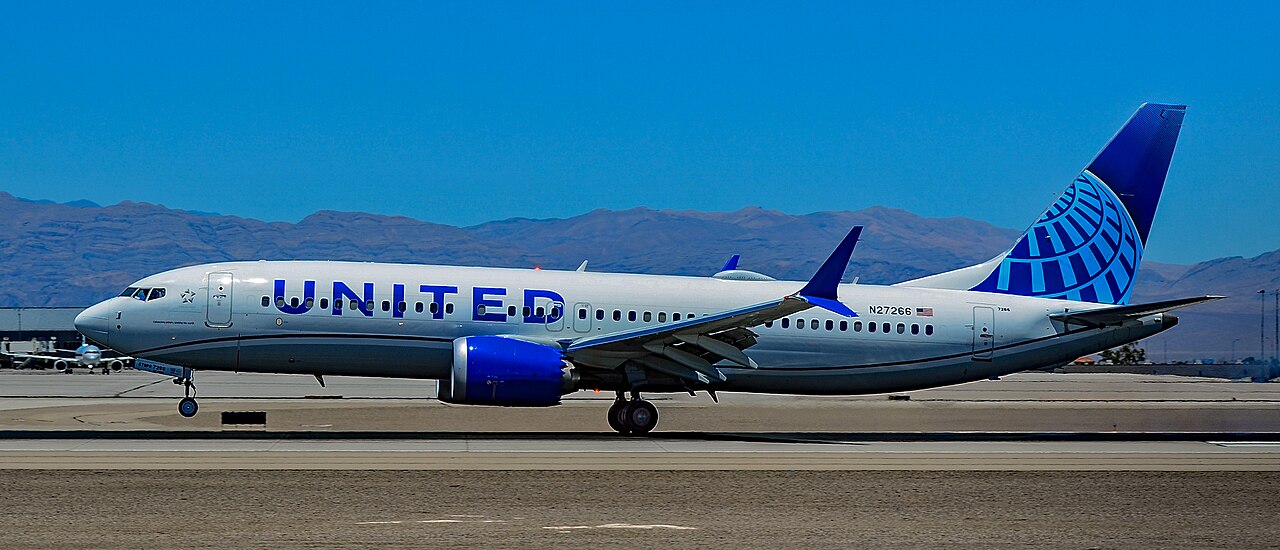In light of a concerning incident involving a United Airlines Boeing 737 MAX 8, the National Transportation Safety Board (NTSB) has issued urgent safety recommendations regarding the rudder control system on specific Boeing 737 aircraft. The incident, which occurred in February, highlighted a critical issue with the rudder pedals, leading to heightened scrutiny from both the NTSB and the Federal Aviation Administration (FAA). While no injuries were reported, the NTSB has called for immediate action to ensure the continued safety of Boeing 737 aircraft.
The Incident: Stuck Rudder Pedals at Newark
The NTSB’s recommendations stem from an event in which the rudder pedals on a United Airlines Boeing 737 MAX 8 became “stuck” in a neutral position during landing at Newark Liberty International Airport. Fortunately, there were no injuries among the 161 passengers and crew on board. However, the malfunction raised significant concerns about the potential for similar incidents in other aircraft.
Join us on TELEGRAM for the Latest Aviation Updates fresh to your phone.

United Airlines revealed that the rudder control parts implicated in the issue were in use in only nine of its 737 aircraft, all of which were originally built for other airlines. As a precautionary measure, United removed these components earlier this year.
NTSB and FAA’s Response
In response to the incident, the FAA, which has been closely monitoring the situation, is set to convene a corrective action review board. The board will review the NTSB’s interim recommendations and determine the necessary next steps.
The NTSB, on its part, confirmed that no Boeing 737s currently operating in the United States have the affected actuators installed. These actuators were present in certain Boeing 737 MAX and older-generation 737 NG planes equipped with an optional landing system. United Airlines had been the only U.S. carrier with the components in use, according to the FAA.

NTSB Urgent Safety Recommendations for Boeing 737 for Boeing and the FAA
The NTSB issued several recommendations in light of the findings:
- Boeing Notification to Flight Crews: The NTSB urged Boeing to notify flight crews about the potential for the rudder control system to jam, a condition that can be caused by accumulated moisture inside the actuators that could freeze. They also recommended Boeing to determine appropriate flight crew responses for situations where the rudder control system jams during flight or landing, beyond simply applying maximum pedal force.
- FAA Action: The NTSB advised the FAA to investigate whether certain actuators manufactured by Collins Aerospace, a division of RTX, should be removed from affected airplanes. If necessary, the FAA should halt the use of any planes with these actuators until replacements are installed. Furthermore, the NTSB recommended that the FAA inform international aviation regulators if they decide that the components must be removed.
Collins Aerospace and Boeing’s Response

Collins Aerospace identified that a bearing within the actuators had been incorrectly assembled during production, affecting more than 353 actuators delivered to Boeing since February 2017. This manufacturing defect has been pinpointed as the cause of the rudder control issues.
Boeing acknowledged the NTSB’s recommendations, stating that they are actively reviewing the situation to ensure that flight crews are provided with appropriate guidance. In August, Boeing informed operators of affected 737 aircraft about the potential issues with the rudder rollout guidance actuator, a key component of the optional autoland system. Boeing emphasized that the autoland system is designed with multiple layers of redundancy and that the company is working with suppliers to develop additional guidance for addressing the potential malfunction.
RTX, the parent company of Collins Aerospace, confirmed that it is working closely with both Boeing and the NTSB to resolve the issue. They are supporting Boeing and affected airlines to minimize operational disruptions while ensuring the safety of the affected aircraft.
Youssef Yahya is the CEO and Founder of Aviation for Aviators. He also serves as the Chief-in-Editor of the platform’s website, where he shares his passion for aviation and provides valuable resources for aviation enthusiasts and professionals alike. His love for aviation and entrepreneurial spirit drive him to create innovative solutions, making Aviation for Aviators a unique resource in the aviation sector.
You might also like:
- Global Airlines to Acquire Three More Airbus A380s
- United Airlines has Ordered Up to 200 New Boeing 787 Dreamliners and 100 Additional 737 MAX Aircraft.
- The Military version of an Antonov Airliner (The An-12)
- Best Airlines in Southeast Asia
- An Interview with the UK’s Leading Regional Airline: Loganair
Discover more from Aviation for Aviators
Subscribe to get the latest posts sent to your email.

